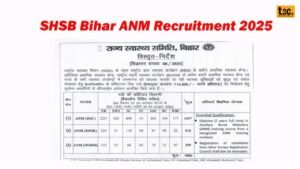U.S. to Review Social Media for Foreign Student Visa Applications!

Foreign Student Visa Applications! The U.S. State Department has announced a significant change in its visa application process for foreign students. As part of a new vetting procedure, international students applying for a U.S. visa will be required to provide their social media handles and set their profiles to “public”. This move aims to enhance the screening process to exclude applicants who pose a threat to U.S. national security.
The policy has sparked concerns among students, universities, and experts, who worry about the potential implications for international education and cultural exchange. In this article, we will explore the details of the new policy, its potential impact on foreign students and U.S. universities, and what this means for the future of international education in the United States.
Key Points to Consider the Foreign Student Visa Applications
- Social Media Screening: The State Department will review social media accounts of foreign students applying for a U.S. visa, including posts, comments, and other online activity.
- Public Profiles Required: Students applying for a visa will need to set their social media profiles to “public” to allow access to their online activity.
- Potential Grounds for Rejection: Failure to allow access to social profiles could be grounds for rejection, and consular officers will look for indications of “hostility” toward the U.S. or its people.
Before proceeding further, take a look at: From Reels to Restrictions: Decoding India’s Movie Ban Laws

Impact on International Students
The new policy has sparked concerns among international students and universities. Some of the potential implications include:
- Increased Scrutiny: Students who express political views or engage in online activism may face increased scrutiny and potential visa delays or denials.
- Visa Revocations: Over 1,000 international students have faced visa revocations in the past year, often over minor infractions or perceived political alignments.
- Chilling Effect: The policy may deter international students from applying to U.S. universities, potentially impacting the diversity and reputation of U.S. institutions.
What This Means for U.S. Universities
The decline in international students coming to the U.S. could have significant consequences for universities that rely on these students for tuition and cultural diversity. Some potential implications include:
- Loss of Revenue: A decline in international students could result in lost revenue for U.S. universities, impacting their financial stability and ability to invest in research and academic programs.
- Reduced Diversity: The absence of international students could reduce diversity on U.S. campuses, limiting opportunities for cultural exchange and collaboration.
Do not miss out on reading on: AP POLYCET 2025 Counselling Registration Begins Today: A Comprehensive Guide!
Potential Impact on U.S. Universities
The new policy requiring social media review for foreign student visa applications could have significant implications for U.S. universities. Some potential impacts include:
- Reduced international student enrollment: The added scrutiny and potential for visa denials based on social media activity could deter international students from applying to U.S. universities.
- Loss of diversity and cultural exchange: A decline in international students could lead to a loss of diversity and cultural exchange on U.S. campuses, potentially impacting the educational experience for all students.
- Economic implications: International students contribute significantly to the U.S. economy through tuition and living expenses. A decline in international student enrollment could have economic implications for universities and local communities.

Foreign Student Visa Applications Concerns and Criticisms
The new policy has raised concerns and criticisms from various stakeholders, including:
- Universities and colleges: Many universities have expressed concerns about the potential impact of the policy on international student enrollment and the overall diversity of their student bodies.
- Civil liberties organizations: Some civil liberties organizations have criticized the policy as an infringement on freedom of expression and association.
- International students: Many international students have expressed concerns about the potential for bias and discrimination in the social media review process.
Cast your eyes on: NEET UG 2025: MBBS Seats in India: A Comprehensive Guide!
Potential Solutions and Alternatives
Some potential solutions and alternatives to the new policy include:
- More nuanced approach: Developing a more nuanced approach to social media review that takes into account the context and intent behind online activity.
- Clearer guidelines: Providing clearer guidelines and criteria for social media review to ensure consistency and fairness in the application process.
- Increased transparency: Increasing transparency in the social media review process to build trust and confidence among international students and universities.
Conclusion
The U.S. State Department’s new policy requiring foreign students to provide their social media handles as part of the visa application process has sparked concerns and uncertainty. While the policy aims to enhance national security, it may have unintended consequences for international students and U.S. universities. By understanding the implications of this policy, students and universities can better navigate the complexities of the U.S. visa application process.
Learn how student chapters can provide networking opportunities and professional growth. Click to read and join our WhatsApp community!
Not sure which career to choose? Our professionals can guide you. Book your counselling session now on Mytagapp.com!







